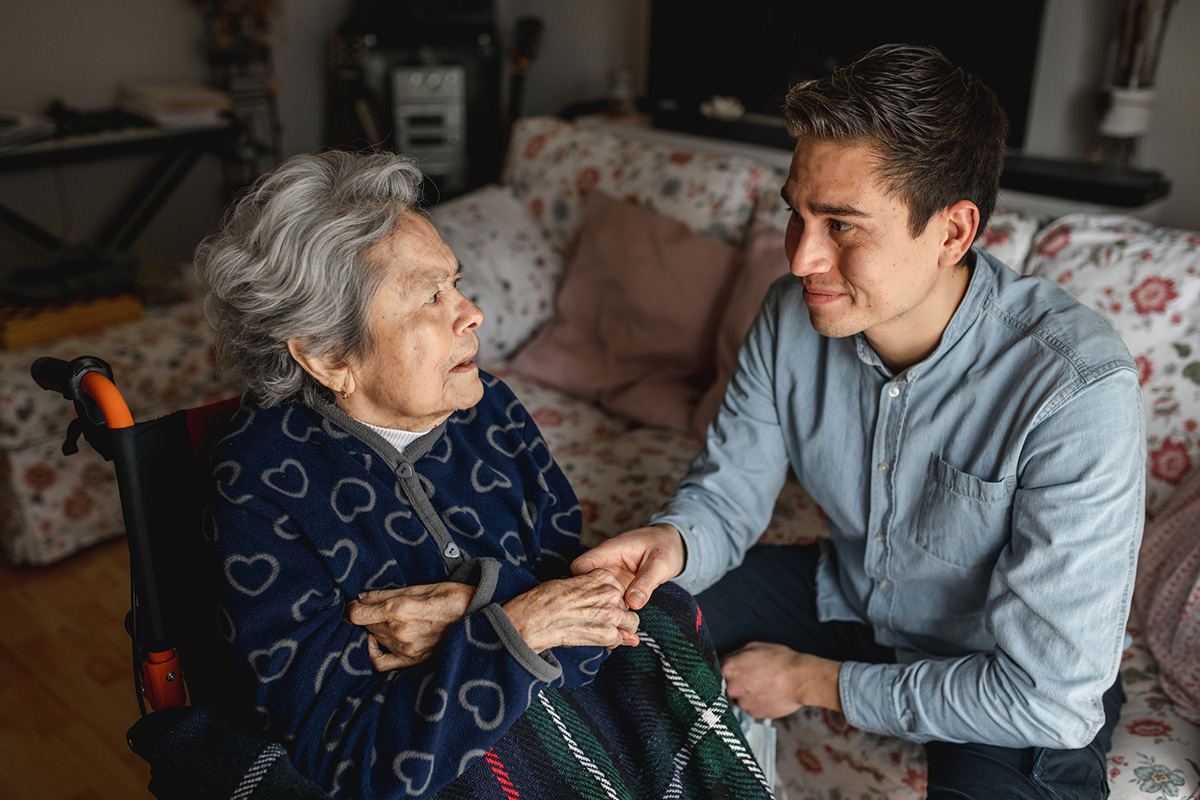Six Strategies for Coping When Caregiving is Taken for Granted

A couple of years ago, my partner had an allergic reaction to a common antibiotic. She felt a little funny and then, suddenly, was covered in any ugly, itchy rash, and her throat swelled. We cajoled her into getting into the car and took her straight to the emergency room.
She was fine in a few days, but it was an ordeal. I fielded her fretful phone calls as I raced back and forth between home and the hospital, lugging her favorite foods, the drawing materials she’d asked for, and new, looser clothes that wouldn’t irritate her skin.
The day we brought her home, I set her up in bed and asked if she needed anything more. She took a deep breath and let it out slowly.
“Thanks, babe,” she said. “I would rather be in pain 24 hours a day than itch. Itching is the worst.”
A few beats passed. My mouth felt dry; my head, buzzy. “Okay,” I said, my voice coming from a long way off, and then stalked out of the room.
Sometimes Caregiving Requires a Thick Skin
If you’ve read my blogs before, you know I am in pain 24 hours a day, or nearly so. I’ve had a chronic pain condition for 25 years. I’d been in pain the whole time I was caring for my partner in the hospital, and long after her rash faded, my illness remains.
So when she made her comment about preferring pain to itching, I wanted to scream out the window. I had taken such good care of her. How could she be so thoughtless?
Caregiving brings us into some very vulnerable spaces. We may want to be our best selves for our loved ones all the time, but when we ourselves need caretaking, we often aren’t at our best.
If you’ve ever been a caregiver to someone who’s impatient, embarrassed, or overwhelmed, or is dealing with fear about their health, you know that some days it takes a really thick skin. How can we avoid taking it personally when the person that we’re caring for lashes out at us — or is simply unappreciative? These six strategies may help you cope with this kind of situation.
Arm Yourself With Empathy
Sometimes crabby or unkind behavior is easier to tolerate if you try to understand what your loved one is going through. They may be feeling anxious about their new or changing symptoms or loss of function. They may be scared about what their diagnosis means for their future. They may be in a level of pain that erodes their patience.
Speak to their doctors and therapists to get a sense of what they’re facing and what to expect. Especially if they’re experiencing changing cognitive function, it’s crucial to understand how that can affect their behavior and personality.
Do Your Homework
You’re probably not the first person who ever had to care for someone with your loved one’s health problem. There are a lot of resources out there to help you understand their struggles and know what to expect as their caregiver — such as:
You’ll find a lot more health condition-specific caregiver resources at caregiving.org.
Try the Buddy System
When caregiving is causing friction, it can help to bring a buddy. It gives you an ally and offers your loved one some novelty. They may also be a little more considerate “in front of guests,” allowing enough breathing space to help make things smooth again.
Practice Mindfulness
If your patience is wearing thin, you might find mindfulness meditation helpful. This practice helps us focus more fully on the primary sensations of the body and mind, without trying to interpret, judge, or change them. Over time, it can help us be more patient in frustrating situations.
Seize Opportunities for Respite
I’ve said this before, but it bears repeating: you need to take breaks. Ask a friend to help you strategize things like:
How you can fit in some self-care
How to arrange for someone to sub for you a couple of nights a month
How you could get coverage on some weekends
Formal respite programs may also be available through local organizations and private home health programs.
You can also post your specific support needs to lotsahelpinghands.com so your family and friends can see what they can do to help.
Express Your Feelings
Bottling up hurt feelings won’t make them disappear. Instead, try sharing how you feel with someone. It may not be appropriate to unburden yourself to the person you’re caring for, but if it is, you should choose a quiet moment to do that. If not, you could vent to a trusted friend or family member. Or, you could find a counselor or therapist who can help you get your feelings off your chest.
You matter, and so do your feelings. Caring for yourself is just as important as caring for your loved one.




